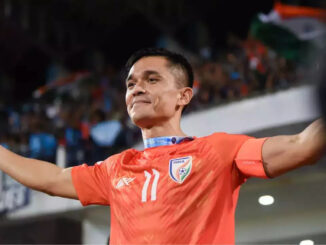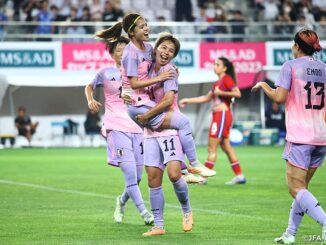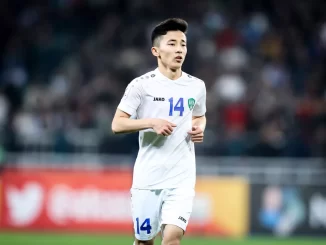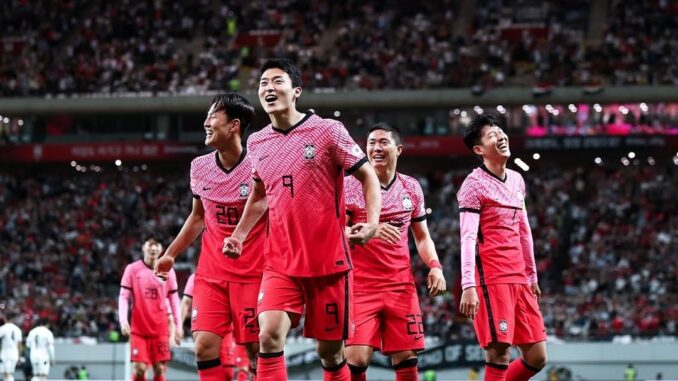

The Asian Game’s coverage of the FIFA World Cup Qatar 2022 is proudly sponsored by SMC.
South Korea head to Qatar for a tenth successive World Cup following an almost blight-free qualification campaign.
Already a proven heavyweight in Asia, with a growing wealth of players now plying their trade at the very highest levels of European football, it’s hoped their Road to Qatar has prepared them to take on the very best in global football, as they once again set sights on making the knockout stages.
In a qualification campaign which saw them drop points in only five matches, including one solitary defeat (a final day dead rubber), their results underline their dominance in Asia over the last three years.
The presence of Portuguese coach Paulo Bento, sworn in following their group stage elimination in Russia four years ago, has brought with it stability and consistency at such levels we haven’t seen for some time.
But as we approach the 2022 edition, opinions are split over whether such a rigid and predictable formula in which Korea set up, despite having proven to be so successful in Asia, can have the same impact when it needs to move up a gear on the global stage.
Bento leads a near faultless qualification campaign
Paulo Bento’s reign as South Korea coach came off the back of an all-too-predictable tale of frustration at the 2018 World Cup in Russia.
Expectations were high heading into the tournament, only for the Taegeuk Warriors to come out lacking bite. While there was a famous victory over Germany in their final match, Korea were by that stage already eliminated following a broadly negative and nervy campaign overseen by the outgoing Shin Tae-yong.
Bento’s arrival promised a return to playing a modern brand of football; with an attack focus not seen over the previous few World Cup cycles. While the last four years have been successful in terms of qualifying for yet another World Cup, only glimmers of that desired attacking style of football have been demonstrated with any sort of regularity.
Instead, Korea have harnessed a firmer, more consistent identity, reminiscent of the way domestic K League football has grown in continental prominence over the last two decades.
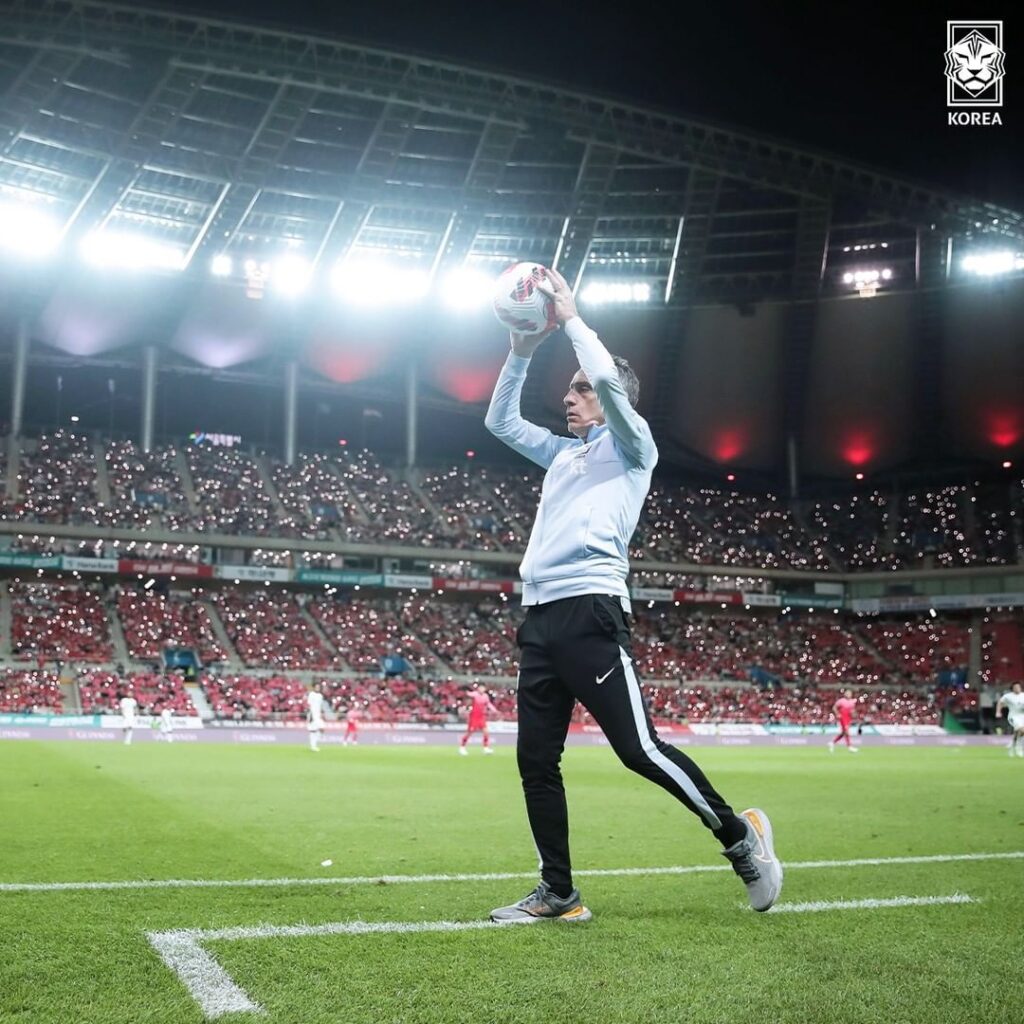
The stability of an experienced and all-round keeper in the form of Kim Seung-gyu, behind a reliable partnership of Kim Young-gwon and the blossoming talents of Kim Min-jae, kept 13 clean sheets from 17 games across qualification illustrating the type of foundations upon which this this team can now rely.
The positives aren’t entirely based in defence either. In each and every match during qualification, Korea were undoubtedly the side in the ascendency. Years of trying to shoehorn Son Heung-min into a system that gets the very best out of their global star either seems to have finally found a solution, or more likely has been put to bed by their talisman’s growingly flexibility as he heads into his prime.
The link up and creativity between the likes of Lee Jae-sung, Hwang In-beom and Paik Seung-ho is representative of the way Bento wants the team to play. Quick and incisive in their build-up, in control of possession, unflustered and attractive on the eye.
The team as a whole feels more fluid in possession than it did in previous campaigns, an acceptance on an individual level, and as a unit, of a defined way of playing required to be successful when competing on the world stage.
But while this play has seen Korea grow from strength to strength continentally, off the back of what can be considered the most comfortable of qualification campaigns, doubts remain as to how this will materialise when they face up to the very best globally. Has Bento got the tactical flexibility to adapt accordingly?
Consistent but lacking a spark
Those doubts reared their head early on in the cycle, as far back as the 2019 Asian Cup, where many tipped South Korea to, if not to win the title, at least make it to the latter stages. Their group stage was reminiscent of the qualification campaign to come; unbeaten (three wins from three), having not conceded a goal, but crucially not storming past teams on the scoresheet, the way their dominant football promised.
A tough win, despite again commanding play against Bahrain in the Round of 16, in the end led to an early exit to Qatar, the eventual champions, in the quarter finals. For all the promise of a new playing style, Bento undoubtedly failed in delivering Korea to the latter stages of the Asian Cup.
Embed from Getty ImagesMere months into his tenure, a bedding in period needed to be granted, but concerns were raised straight off the bat.
The forthcoming World Cup qualification campaign has regrettably mirrored their progress at the Asian Cup. Dominant on paper, solid defensively, and imposing in general play, yet failing to put games to bed early on or even at all.
This was demonstrated in early frustrating draws against rivals North Korea and Lebanon, posing questions of their progress at an earlier point than many had been expecting. A withdrawal from qualification by their neighbours avoided any potential embarrassment relating to progression to the final round, yet it covered up many potential weaknesses.
In the final run in, a similarly effective brand of controlling football was replicated, but a lack of a cutting edge remained.
Struggles against the deep block of Lebanon were once again on full display, as was the case against the similar tactical set up of Iraq. Defensively they remained untroubled but in attack they lacked a spark that failed to see Korea really take an opponent to task.
Their only competitive defeat in three year qualification cycle may have come in a match where they had already qualified, but against a competitive and forward thinking UAE, who needed a result to keep their own qualification hopes alive at the time, Korea looked a little shaken and out of ideas.
Bento’s selection comes under scrutiny as we head towards Qatar
As we sit, just two months away from the World Cup in Qatar, concerns of Taegeuk Warriors fans will broadly hone in on Bento’s inflexibility and rigid selection policy.
While they can take solace from a consistent approach, built on predictability within the squad, the question of what they have to call upon as a Plan B option is still unanswered. The biggest worry, as has been for much of the last decade, is what happens if Son isn’t firing?
A difficult question to answer, as any team without their star man would attest (as Son’s club side Tottenham Hotspur are currently experiencing), but given the number of options Korea have, in and around the squad, interesting alternatives are becoming readily available for selection.
Hwang Ui-jo remains the focal point of this team, despite a lack of high-quality domestic minutes, and a static presence in attack that doesn’t resemble the movement of those who support him. Unquestionably. however, he remains potent in Korean colours; the best partner to supply Son, yet it doesn’t stop calls for other options to be considered.
The slow emergence of Cho Gue-sung has been hampered by military service over the last two years, while more mobile and flexible options such as Hwang Hee-chan and Song Min-kyu have only been flirted with as the central striking option by Bento.
In behind, the emergence of Lee Kang-in, to this point broadly ignored by Bento, feels to many a missed opportunity, especially given his start in La Liga this season. Lee’s call up this September, could indeed provide answers to many of questions lingering over this Korean side.
The size of the talent pool available to the coach is arguably deeper than any of those in Asia at the moment, but over a long four-year cycle of World Cup preparation, the reluctance to experiment may hinder them come their kick-off against Uruguay in November.
Bento and his apologists will argue, why fix something that isn’t broke? Korea have been undeniably successful in qualification, yet the next level is an obvious concern. In the last 18 months, they have comprehensively lost twice to regional rivals Japan and been hammered 5-1 at home to Brazil.
The harsh reality highlighting the differences between themselves and the elite in world football will have undoubtedly been felt by Bento, but whether he adapts his approach from what has initially proven to be successful on the Road to Qatar, is another guess entirely.
PHOTO: Instagram/thekfa
Listen to Episode 91 of The Asian Game Podcast


